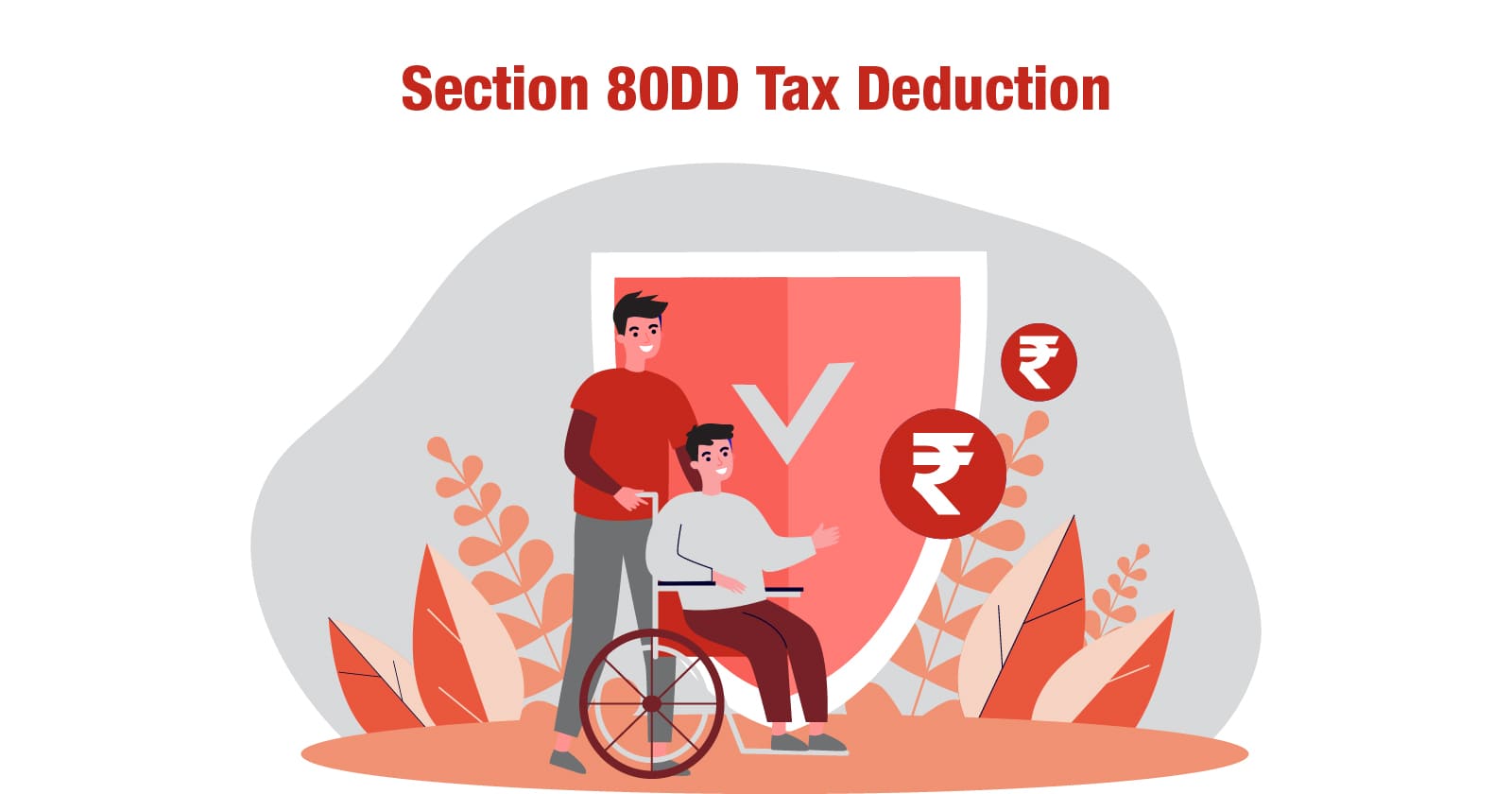The Benefits of 80DD Deduction: Tax Benefits for Disabilities
The 80DD deduction is a significant provision in Indian income tax laws that aims to provide tax benefits to individuals with disabilities. Understanding this deduction is crucial for individuals looking to avail of its benefits. This section will provide a comprehensive overview of the 80DD deduction.
What is 80DD Deduction?

The 80DD deduction is a provision under Section 80DD of the Income Tax Act that allows individuals to claim deductions for expenses incurred on the medical treatment and maintenance of dependents with disabilities. The primary purpose of this deduction is to provide financial assistance to individuals who have dependents with disabilities.
Eligibility Criteria for 80DD Deduction
To qualify for the 80DD deduction, individuals must meet certain eligibility criteria. The deduction is available to both resident and non-resident individuals who have a dependent with a disability. The dependent can be a spouse, child, parent, or sibling of the individual. However, the dependent should not have claimed the deduction under Section 80U for
themselves.
Types of Disabilities Covered
Section 80DD covers various types of disabilities, including blindness, low vision, hearing impairment, locomotor disability, mental illness, autism, cerebral palsy, and multiple disabilities. It is important to understand the specific disabilities covered to determine eligibility for the deduction.
Documents Required for Claiming Deduction
To claim the 80DD deduction, individuals need to provide certain documents as proof. These include a certificate from a medical authority specifying the disability, its nature, and the extent of the disability. Additionally, individuals may need to provide medical bills, receipts, and other relevant documents to support their claim.
Quantum of Deduction
The quantum of deduction under Section 80DD varies based on the severity of the disability. This section will explain the deduction limits and provide insights into the calculation methodology.
Deduction Limits
The deduction limits for 80DD depend on whether the disability is moderate or severe. For moderate disabilities, the deduction limit is Rs. 75,000, while for severe disabilities, the limit is Rs. 1,25,000. It’s important to understand these limits to maximize the benefits.
Calculation Methodology
The calculation of the deduction amount under 80DD follows a specific methodology. Individuals can claim a fixed amount regardless of the actual expenses incurred. However, if the expenses exceed the fixed amount, the excess amount can also be claimed. Examples and scenarios will be provided to illustrate the calculation process.
Conditions and Exclusions
While the 80DD deduction offers significant benefits, there are certain conditions and exclusions to be aware of. This section will highlight the conditions that must be met to claim the deduction and address scenarios where the deduction may not apply.
Conditions for Claiming 80DD Deduction
To claim the 80DD deduction, individuals must fulfill certain conditions. These conditions include obtaining a disability certificate from a medical authority, ensuring the dependent is wholly or mainly dependent on the individual, and not receiving any insurance reimbursement for medical treatment or rehabilitation.
Exclusions from 80DD Deduction
While the 80DD deduction covers a wide range of disabilities, there are certain exclusions to be aware of. If the dependent has claimed a deduction under Section 80U for themselves, the individual cannot claim the deduction under Section 80DD. Additionally, if the dependent has received any insurance reimbursement for medical treatment or rehabilitation, the deduction may not be applicable.
Procedure for Claiming 80DD Deduction
This section will provide a step-by-step guide on how to claim the 80DD deduction. It will cover the necessary forms and
documents to be submitted, as well as the importance of maintaining proper records.
Step-by-Step Guide
To claim the 80DD deduction, follow these steps:
Obtain a disability certificate: Visit a medical authority recognized by the government to obtain a disability certificate specifying the nature and extent of the disability.
Fill out Form 10-IA: Fill out Form 10-IA, which is the form for claiming the deduction under Section 80DD. Provide accurate details about the dependent and the disability.
Submit the form and supporting documents: Submit the filled-out Form 10-IA along with the disability certificate and other supporting documents, such as medical bills and receipts, to the income tax department.
Maintain proper records: It is crucial to maintain proper records of all the documents submitted for future reference and audit purposes.
Frequently Asked Questions
What is the deduction limit for moderate disabilities?
The deduction limit for moderate disabilities under Section 80DD is Rs. 75,000.
How is the deduction amount calculated for severe disabilities?
For severe disabilities, the deduction limit is Rs. 1,25,000. Individuals can claim a fixed amount regardless of the actual expenses incurred, but if the expenses exceed the fixed amount, the excess amount can also be claimed.
What documents do I need to claim the 80DD deduction?
To claim the 80DD deduction, you need to provide a disability certificate from a medical authority, specifying the
disability and its extent. Additionally, maintain records of medical bills, receipts, and other relevant documents to
support your claim.
Is it necessary to maintain records of the documents submitted?
Yes, it is essential to maintain proper records of all the documents submitted for future reference and in case of audits by the income tax department.
Can I claim the 80DD deduction if my dependent has received insurance reimbursement for medical treatment?
No, if the dependent has received any insurance reimbursement for medical treatment or rehabilitation, the 80DD deduction may not be applicable.
Can I claim the 80DD deduction for multiple dependents with disabilities?
Yes, you can claim the 80DD deduction for multiple dependents with disabilities, provided you meet the eligibility criteria and fulfill the necessary conditions.
Conclusion
we’ve explored the types of disabilities covered under this provision and emphasized the importance of documentation and compliance. By understanding the scope of disabilities and following the prescribed procedures, you can maximize the benefits of an 80DD Deduction for yourself and your disabled dependents.




